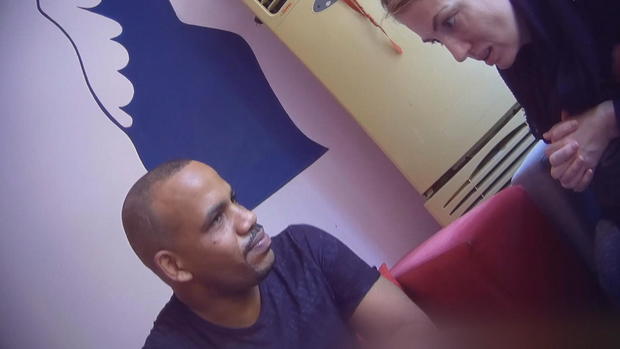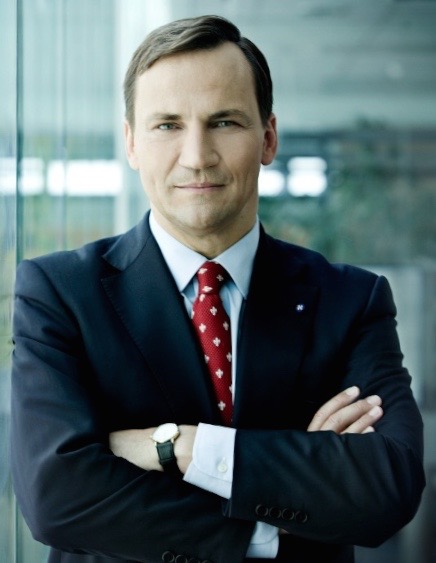2-12-2019 PLOVDIV, Bulgaria (Reuters) On a cold day in
January, Ivanka Angelova was at home with her daughter and four
grandchildren when the village mayor arrived and advised them to leave.
Two neighbors - brothers aged 17 and 21 - were accused of beating up a local
resident. The victim, a soldier, had been hospitalized.
Angelova, who like the brothers is from Bulgaria’s minority Roma
community, said the mayor told her that villagers were out for revenge. He
was concerned her family might be attacked. She and most of the 76-strong
Roma community fled Voyvodinovo village that evening, Jan. 6, and headed
ten kilometers to Plovdiv, Bulgaria’s second largest city.
“We were spread all over the place like a broken egg,” said Angelova, a
widow, wiping away tears. Bulgaria, which joined the European Union in
2007 and is its poorest member, has one of the bloc’s largest Roma
minorities. As in other EU countries, many Roma live on the fringes of
society and struggle for work - with those in small settlements facing
legal problems when it comes to land ownership, says the Bulgarian Helsinki
Committee (BHC), a human rights group.
After Angelova and her family fled, the authorities started to demolish the
cluster of 17 small homes at the village’s edge. When the Thomson Reuters
Foundation visited three days later, three houses had been destroyed and
several others damaged. Notices were pasted to the other homes to notify
residents that theirs would be demolished too.
According to the 2011 census, there were 325,000 Roma people comprising
about 5 percent of Bulgaria’s 7.3 million people. The Europea
Commission, however, estimates there are more than twice as many Roma -
about 750,000 people. In the week following the assault on the localresident,
nationalist and far-right groups held nightly gatherings in Voyvodinovo.
And at a Jan. 8 press conference, Krasimir Karakachanov - the deputyprime
minister and head of the nationalist VRMO party - referred to the incident
when he said “gypsies ... have grown exceedingly insolent”....
In a case brought by the BHC to the European Court of Human Rights
(ECHR) the court ruled in 2012 that in seeking to evict Roma from a
community in the capital Sofia, the Bulgarian authorities had violated one’s
“right to respect for his private and family life, his home and his
correspondence”. Kanev said the ECHR recognized that “you cannot evict
people on an arbitrary basis leaving them without any shelter”.
https://www.reuters.com/article/us-bulgaria-roma-housing
feature/forced-evictions-discrimination-continue-to-afflict
bulgarias-roma-minority-idUSKCN1Q202O
.........................................................
3-29-16
Stolipinovo, a ghetto neighbourhood near to the center of one of Europe’s oldest
and most historical cities, can safely be described as third-world, poverty
stricken, rampant with disease, heavily polluted, and somewhat shocking. As
many as fifty-thousand predominantly Roma (Gypsy) people are densely packed
into concrete communist-era apartment blocks, or within the surrounding
tapestry of hobbled-together shacks and shanties. In both cases, many survive
without running water.
Much of the district is covered in a putrid sea of trash. Broken sewerage and
water pipes leave large pools of fetid water along the main boulevards. Not so
long ago, a hepatitis epidemic ran through the area. Unemployment and crime,
are off the charts. Many children don’t attend school. Recently listed as the
worst place on the planet to take a short vacation, Stolipinovo is a parallel world
hat defies belief, just a short drive from the heart of Plovdiv, Bulgaria. This is the
argest Gypsy ghetto in Europe.
Along with a Nepalese photojournalist, and two local Bulgarian girls roped into
providing translation duties, we walked to Stolipinovo from the city centre of
Plovdiv, Bulgaria. It’s only about a two or three kilometer journey. Chatting on the
way, I discovered that neither of the local girls had ever walked around “the
ghetto”, but both seemed somewhat curious. Until now, they had only read and
seen tales from Stolipinovo in the local media – dominated by reports of drugs,
murder, crime and poverty. Now, they would see for themselves just what the ghetto down the street was all about.
https://yomadic.com/stolipinovo-gypsy-ghetto/
................................................................................
Oct 2nd 2011 Again there is a clear segregation and distrust, the Roma groups are
January, Ivanka Angelova was at home with her daughter and four
grandchildren when the village mayor arrived and advised them to leave.
Two neighbors - brothers aged 17 and 21 - were accused of beating up a local
resident. The victim, a soldier, had been hospitalized.
Angelova, who like the brothers is from Bulgaria’s minority Roma
community, said the mayor told her that villagers were out for revenge. He
was concerned her family might be attacked. She and most of the 76-strong
Roma community fled Voyvodinovo village that evening, Jan. 6, and headed
ten kilometers to Plovdiv, Bulgaria’s second largest city.
“We were spread all over the place like a broken egg,” said Angelova, a
widow, wiping away tears. Bulgaria, which joined the European Union in
2007 and is its poorest member, has one of the bloc’s largest Roma
minorities. As in other EU countries, many Roma live on the fringes of
society and struggle for work - with those in small settlements facing
legal problems when it comes to land ownership, says the Bulgarian Helsinki
Committee (BHC), a human rights group.
After Angelova and her family fled, the authorities started to demolish the
cluster of 17 small homes at the village’s edge. When the Thomson Reuters
Foundation visited three days later, three houses had been destroyed and
several others damaged. Notices were pasted to the other homes to notify
residents that theirs would be demolished too.
According to the 2011 census, there were 325,000 Roma people comprising
about 5 percent of Bulgaria’s 7.3 million people. The Europea
Commission, however, estimates there are more than twice as many Roma -
about 750,000 people. In the week following the assault on the localresident,
nationalist and far-right groups held nightly gatherings in Voyvodinovo.
And at a Jan. 8 press conference, Krasimir Karakachanov - the deputyprime
minister and head of the nationalist VRMO party - referred to the incident
when he said “gypsies ... have grown exceedingly insolent”....
In a case brought by the BHC to the European Court of Human Rights
(ECHR) the court ruled in 2012 that in seeking to evict Roma from a
community in the capital Sofia, the Bulgarian authorities had violated one’s
“right to respect for his private and family life, his home and his
correspondence”. Kanev said the ECHR recognized that “you cannot evict
people on an arbitrary basis leaving them without any shelter”.
https://www.reuters.com/article/us-bulgaria-roma-housing
feature/forced-evictions-discrimination-continue-to-afflict
bulgarias-roma-minority-idUSKCN1Q202O
.........................................................
3-29-16
Stolipinovo, a ghetto neighbourhood near to the center of one of Europe’s oldest
and most historical cities, can safely be described as third-world, poverty
stricken, rampant with disease, heavily polluted, and somewhat shocking. As
many as fifty-thousand predominantly Roma (Gypsy) people are densely packed
into concrete communist-era apartment blocks, or within the surrounding
tapestry of hobbled-together shacks and shanties. In both cases, many survive
without running water.
Much of the district is covered in a putrid sea of trash. Broken sewerage and
water pipes leave large pools of fetid water along the main boulevards. Not so
long ago, a hepatitis epidemic ran through the area. Unemployment and crime,
are off the charts. Many children don’t attend school. Recently listed as the
worst place on the planet to take a short vacation, Stolipinovo is a parallel world
hat defies belief, just a short drive from the heart of Plovdiv, Bulgaria. This is the
argest Gypsy ghetto in Europe.
Along with a Nepalese photojournalist, and two local Bulgarian girls roped into
providing translation duties, we walked to Stolipinovo from the city centre of
Plovdiv, Bulgaria. It’s only about a two or three kilometer journey. Chatting on the
way, I discovered that neither of the local girls had ever walked around “the
ghetto”, but both seemed somewhat curious. Until now, they had only read and
seen tales from Stolipinovo in the local media – dominated by reports of drugs,
murder, crime and poverty. Now, they would see for themselves just what the ghetto down the street was all about.
https://yomadic.com/stolipinovo-gypsy-ghetto/
................................................................................
Oct 2nd 2011 Again there is a clear segregation and distrust, the Roma groups are
very closed in themselves with negative attitude towards education, seen as something
useless. There are huge families who live in poverty, the kids are sent to beg and steal or
sold, prostitution numbers are skyhigh and so on.
Or even worse, the families live in almost fallen buildings huge and many satellite dishes on the roofs and the whole family is on the streets - begging, stealing, being used as prostitutes. But the biggest issue is that this is controlled by very, very white mafia. Yes, there are several big names like Rashkov but predominantly it's so very Bulgarian mafia who is in control and they are in bed with the politicians to the point that that's not even a "public secret" but a well known fact by everyone.
2-23-2013 Bulgarians feel (rightly) that they were ripped off by the private companies in charge of their utilities and got really cross with the companies in question and their government. What they have painfully realised is that liberalising key public utilities does not actually ensure good prices. The system failed not because it was a bad idea. It failed because in Bulgaria, just like in all the Balkans, there can never be fair competition. There is no such mentality. The way things are done in this part of the world has not changed much since the apparachyk times, which were a legacy of the Byzantine-Russian administrative tradition. The three companies realised that it's no good competing each other so they formed a cartel, ripping off the public to make bigger profits.
Oct 4th 2011 There is an increasing trend of visible extremest groups and radical political parties stirring up hatred against Roma. The integration of Roma makes little headway leading to major problems across Europe. Attempts need to be made by Bulgarian authorities to defuse tensions and protect Roma communities from violence. https://www.economist.com/node/21531139/comments?page=1
.....................
















